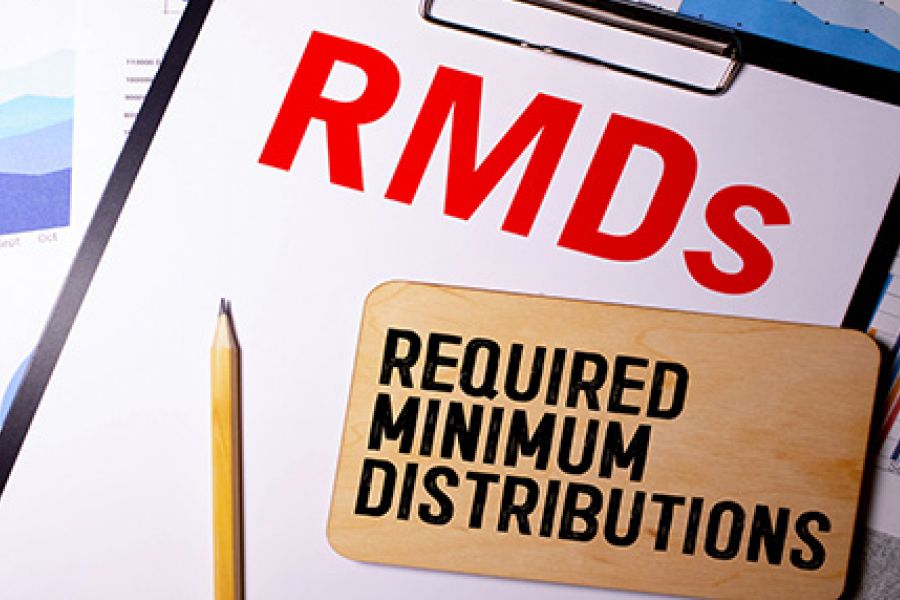On 2/3/2023, the IRS issued Notice 2023-16 guidance that modifies the definitions of certain vehicle classifications for the new, previously owned and qualified commercial clean vehicle tax credits. As a result of this notice, the IRS updated the related frequently asked questions for these credits which can be found on IRS Fact Sheet 2023-4 here: IRS Fact Sheet 2023-04 (This is Blog Post #1340)...

A new law was recently signed that will help Americans save more for retirement, although many of the provisions don’t kick in for a few years. The Setting Every Community Up for Retirement Enhancement 2.0 Act (SECURE 2.0) was signed into law on December 29, 2022. SECURE 2.0 is meant to build on the original SECURE Act of 2019, which made major changes to the required minimum distribution (RMD) rules and other retirement provisions. Here are some of the significant retirement plan changes and when they’ll become effective: The age for beginning RMDs is going up. Employer-sponsored qualified retirement plans, traditional IRAs and individual retirement annuities are subject to RMD rules. They require that benefits start being distributed by the required beginning date. Under the new law,...
On January 10, 2023, IRS news release IR-2023-03 announced that California storm victims now have until May 15, 2023, to file various federal individual and business tax returns and make tax payments. The IRS is offering relief to any area designated by the Federal Emergency Management Agency (FEMA). This means that individuals and households that reside or have a business in Alameda, Colusa, Contra Costa, El Dorado, Fresno, Glenn, Humboldt, Kings, Lake, Los Angeles, Madera, Marin, Mariposa, Mendocino, Merced, Mono, Monterey, Napa, Orange, Placer, Riverside, Sacramento, San Benito, San Bernardino, San Diego, San Francisco, San Joaquin, San Luis Obispo, San Mateo, Santa Barbara, Santa Clara, Santa Cruz, Solano, Sonoma, Stanislaus, Sutter, Tehama, Tulare, Ventura, Yolo and Yuba counties qualify for tax relief. On January 11, 2023, the...
The Clean Vehicle Credit, brought to you by the Inflation Reduction Act of 2022 (IRA '22), is the successor to the New Qualified Plug-in Electric Drive Motor Vehicle Credit. The credit generally applies to vehicles having at least 4 wheels that are placed in service from 1/1/2023 - 12/31/2032. This post is broken down into the following sections: Credits for New Clean Vehicles Purchased in 2023 or After Credits for New Plug-in EVs Purchased before 2023 Used Clean Vehicle Credit Commercial Clean Vehicle Credit CREDITS FOR NEW CLEAN VEHICLES PURCHASED IN 2023 OR AFTER If you buy a new plug-in electric vehicle (EV) or fuel cell vehicle (FCV) in 2023 or after, you may qualify for a clean vehicle tax credit. Who Qualifies You may qualify for a credit...
If you own a home and rent it to a relative, you may be surprised to find out there could be tax consequences. Quick rundown of the rules Renting out a home or apartment that you own may result in a tax loss for you, even if the rental income is more than your operating costs. You’ll be entitled to a depreciation deduction for your cost of the house or apartment (except for the portion allocated to the land). However, if your tenant is related to you, special rules and limitations may apply. For this purpose, “related” means a spouse, child, grandchild, parent, grandparent or sibling. No limitations apply if: You rent a home to a relative who uses it as his or her principal residence (that is,...
Socking away money in a tax-advantaged retirement plan can help you reduce taxes and help secure a comfortable retirement. If your employer offers a 401(k) or Roth 401(k), contributing to the plan is a smart way to build a substantial nest egg. If you’re not already contributing the maximum allowed, consider increasing your contribution. Because of tax-deferred compounding (tax-free in the case of Roth accounts), boosting contributions can have a major impact on the amount of money you’ll have in retirement. With a 401(k), an employee makes an election to have a certain amount of pay deferred and contributed by an employer on his or her behalf to the plan. The amounts are indexed for inflation each year and not surprisingly, they’re going up quite a bit....
If you sold stock shares at a loss at the end of 2022 to offset gains that you’ve realized during 2022, it’s important to watch out for the “wash sale” rule. The loss could be disallowed Under this rule, if you sell stock or securities for a loss and buy substantially identical stock or securities back within the 30-day period before or after the sale date, the loss can’t be claimed for tax purposes. The rule is designed to prevent taxpayers from using the tax benefit of a loss without parting with ownership in any significant way. Note that the rule applies to a 30-day period before or after the sale date to prevent “buying the stock back” before it’s even sold. (If you participate in any...
As you may know, you can’t keep funds in your traditional IRA indefinitely. You have to start taking withdrawals from a traditional IRA (including a SIMPLE IRA or SEP IRA) when you reach age 72. The rules for taking required minimum distributions (RMDs) are complicated, so here are some answers to frequently asked questions. What if I want to take out money before retirement? If you want to take money out of a traditional IRA before age 59½, distributions are taxable and you may be subject to a 10% penalty tax. However, there are several ways that the 10% penalty tax (but not the regular income tax) can be avoided, including to pay: qualified higher education expenses, up to $10,000 of expenses if you’re a first-time homebuyer and...
The overall stock market has been down during 2022 but there have been some bright spots. As year-end approaches, consider making some moves to make the best tax use of paper losses and actual losses from your stock market investments. Tax rates on sales Individuals are subject to tax at a rate as high as 37% on short-term capital gains and ordinary income. But long-term capital gains on most investment assets receive favorable treatment. They’re taxed at rates ranging from 0% to 20% depending on your taxable income (inclusive of the gains). High-income taxpayers may pay an additional 3.8% net investment income tax. Sell at a loss to offset earlier gains Have you realized gains earlier in the year from sales of stock held for more than one year...
The holiday season is here and many people plan to donate to their favorite charities or give money or assets to their loved ones before the end of the year. Here are the basic tax rules involved in these transactions. Donating to charity In 2022, in order to receive a charitable donation write-off, you must itemize deductions on your tax return. What if you want to give gifts of investments to your favorite charities? There are a couple of points to keep in mind. First, don’t give away investments in taxable brokerage accounts that are currently worth less than what you paid for them. Instead, sell the shares and claim the resulting capital loss on your tax return. Then, give the cash proceeds from the sale to charity....











